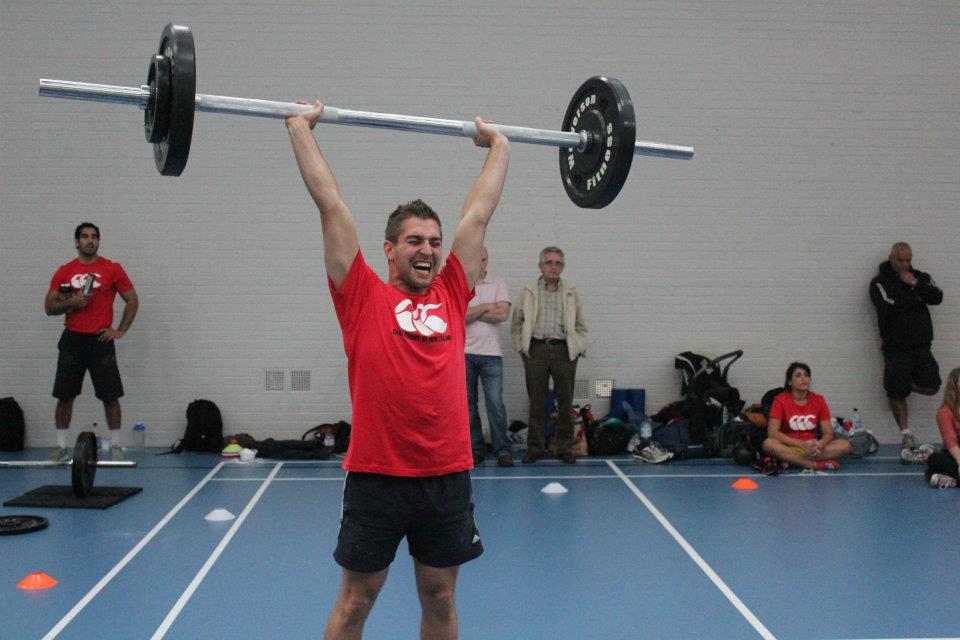Should I Train ‘Balls to the Wall’?
 Go on youtube now and watch some training videos, you know, those shouty, metal blasting workout vids…go, get away from this page! I’ll just kick back until you’re done and want to continue reading…..
Go on youtube now and watch some training videos, you know, those shouty, metal blasting workout vids…go, get away from this page! I’ll just kick back until you’re done and want to continue reading…..
….so you’re back. What did you watch? Did you notice anything?
I want you to notice that when the cameras are out people get psyched up. But should you train this way, or is it something best left alone completely (or at least only on PR days)?
Maxing out constantly is an awesome way to train. Using weights above 90% of your max on the first or main exercise provides a nice big shovel-full of training stimulus right to the neural systems and muscles involved. If you can keep it up, and increase the weights each time you come to do the same exercise, you’ll get strong. Super strong.
But then, what would happen if we lightened the load a little? Using weights between 80-90% of your max on the first or main exercise still provides a big training slap on the arse to get you to progress. You’ll find it easier to keep training this way compared to max effort training (I’ll explain why later), you don’t have to switch up the exercises as often, and you’ll still get super strong.
What the hell? So whether I train using max effort (>90%) or regular effort (80-90% - Note - I just made that name up, Dan John calls it ‘easy strength’, but I didn’t want to steal that name!) I’ll still get strong?
YES!
Max effort training requires a lot of mental effort. This is why on youtube you’ll see guys getting slapped in the face, sniffing ammonia and listening to heavy metal. This is a great way to train if you can handle it. And I don’t just mean physically, can you handle it mentally?
Chances are you’ll get burnt out quickly from the emotional stress of each workout. So for powerlifters it may be a good method. For a rugby player who has to play a sport as well as lift, not so good. So it all depends on your mental/emotional capacity and your sport.
Incidentally, whilst I’m not here to bash training methods, as soon as I shifted my clients training loads from max effort to easy strength (Damn it I stole the name anyway!), we found everyone’s strength and bodyweight increased significantly within 4 weeks. (Adding 2-3kg of muscle and 2.5-5kg on lifts was normal, and this was during a rugby season).
So first, determine whether you are strong enough to start training max effort style (good minimums would be somewhere around: bodyweight bench x 5, 1.5x bodyweight dead x 5, 1.5 x bodyweight squat x 1, 12 pull-ups). Or would you be better off gradually increasing the weights without grinding any reps in training?
The choice is your body’s, not yours.
Also, if you play a sport as well as lift (as all athletes should!), then are you in-season? If so then steer clear of max effort. Off-season programs can benefit from some max effort work providing you can recover.
How long have you been training? 18 months or less? Then I’d suggest training smart and bringing up your strength levels before you experiment with max effort.
Do you find it easy to get angry/shout/spit/scream whilst lifting? If not, then the emotional involvement of max effort training may be too much for you (but damn it is fun!).
A big problem with all these videos and articles on max effort training is that people equate training programs with their performance in a workout. But if we want to increase your weak bench press to 100kg (as a minimum) then you won’t get there by maxing out on benching, curls and press-ups. If we added 5kg to your predicted max and used percentages or rep-ranges that allowed for heavy yet comfortable workouts, I believe you would get to 100kg faster than if using max effort, and in my experience with athletes it works much better.
For assistance work, be smart and pick useful exercises to help your sport rather than your bench press. Then go and get stronger in those movements. Stop worrying about the peak on your bicep and start worrying that your knees cave in every time you do a goblet squat/land from a jump/pick up your schoolbag from the floor. 3-5 reps for assistance work is a good range. Strength is king.
Stop trying to shoot for records every time you get under the bar and start aiming for a good performance 3, 6, 12 and 24 months down the line. I’d rather you bench 120kg for 3 solid reps in 2-3 years whilst being awesome at your sport and getting a professional contract compared to grinding out 40kg for the camera today.
PS - here is a pic of me ripping up the fat bar clean and press from the recent UKs Strongest Athlete comp. 70kg bar, max reps in 60 seconds. I got 12 reps for second place in this event. Facial expressions are optional.
